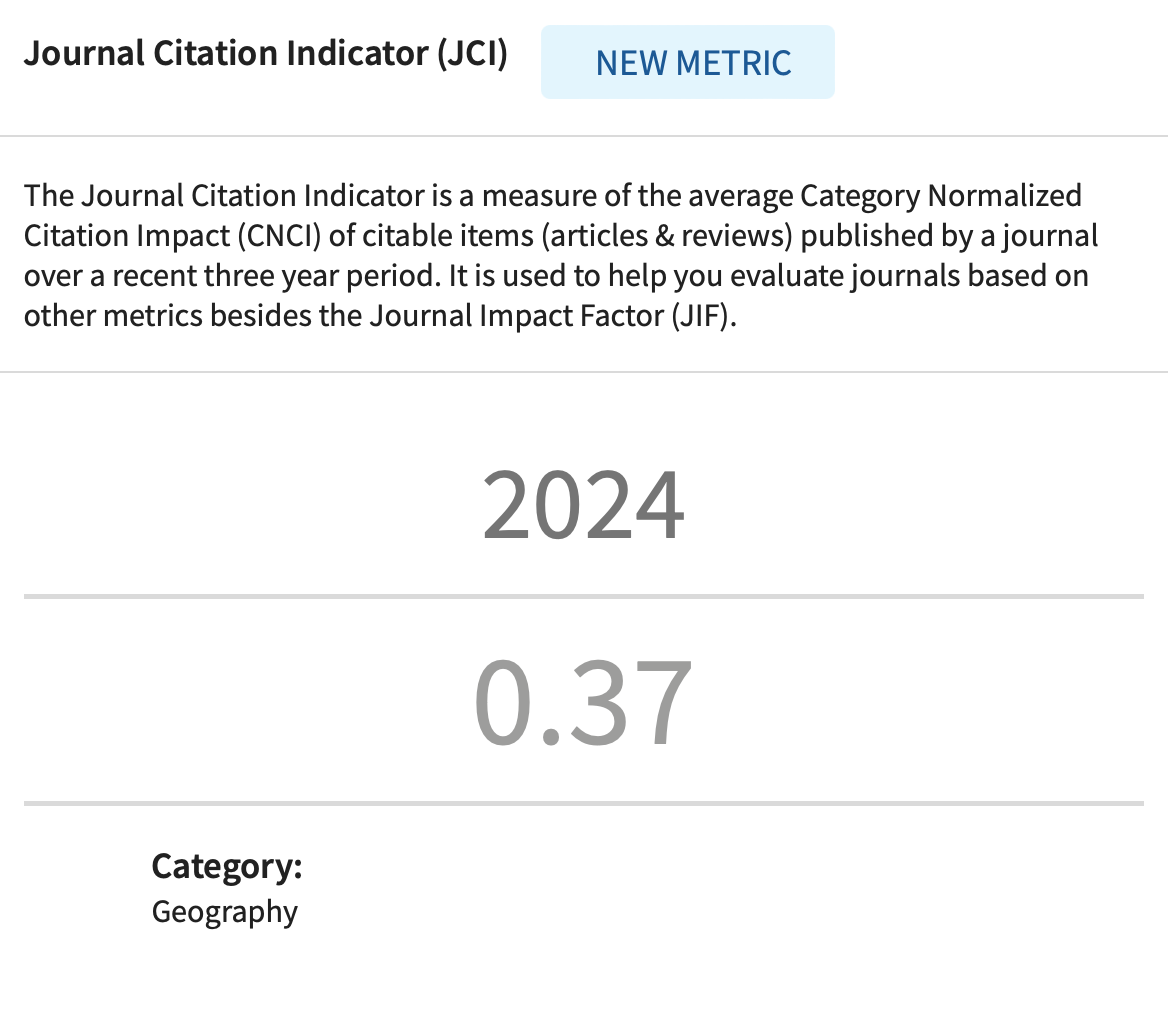THE PERCEPTION OF UNETHICAL ISSUES IN SELECTED THAILAND TOURIST AREAS: MEASURING THE ATTITUDES OF FOREIGN TOURISM STUDENTS
DOI:
https://doi.org/10.2298/IJGI1801085BKeywords:
formal ethical education, tourism, unethical issues, tourism students, ThailandAbstract
The principal aim of the paper was to examine what kind of experience international exchange students, as future professionals in tourism industry, gained during their study at the Faculty of Hospitality and Tourism in Phuket, Thailand. Thus, the paper deals with how often they encountered the unethical issues in the tourism industry, and how these issues affect their perception of the image of Thailand as a tourist destination. The paper also explores how formal education in Tourism ethics affects the perception of Thailand tourism unethical practices, and as such, it is one of the first studies in this field. In addition, the paper intends to show if there is a relationship between formal education in Ethics in tourism and the respondents’ experience and perception of unethical issues. The results show that these unethical issues have the significant and very strong influence on tourism perception of Thailand with a special emphasis on exploitation of women and children in sex tourism. Also, the study indicates that respondents who have a formal education in Ethics were more aware and had a clearer picture of the negative effect of these unethical issues on the image of Thailand as a destination.
Article metrics
References
Alegre, J., & Garau, J. (2010). Tourism satisfaction and dissatisfaction. Annals of Tourism Research, 37(1), 52-73. doi: https://doi.org/10.1016/j.annals.2009.07.001
Anholt, S. (2009). Handbook on Tourism Destination Branding. Madrid: UN World Tourism Organization and European Travel Commission.
Beerli, A., & Martin, J. D. (2004). Factors influencing destination image. Annals of Tourism Research, 31(3), 657-681. doi: https://doi.org/10.1016/j.annals.2004.01.010
Bishop, R., & Robinson, L. (1998). Night Market: Sexual Cultures and the Thai Economic Miracle. New York, NY: Rutledge.
Bone, K., & Bone, J. (2015). The Same Dart Trick: The Exploitation of Animals and Women in Thailand Tourism. In: Markwell K. (Ed), Animals and Tourism: Understanding Diverse Relationships, (60-67). Channel View Publications.
Buhalis, D., & Amaranggana, A. (2015). Smart Tourism Destinations: Enhancing Tourism Experience Through Personalisation of Services. In: Tussyadiah, I. & Inversini, A., (Eds.), Information and Communication Technologies in Tourism (377-389). Heidelberg, Germany: Springer.
Caton, K. (2012). Taking the moral turn in tourism studies. Annals of Tourism Research, 39(4), 1906-1928. doi: https://doi.org/10.1016/j.annals.2012.05.021
Cohen, E. (1979). A phenomenology of tourist experiences. Sociology, 13(2), 179-201. doi: https://doi.org/10.1177/003803857901300203
Cohen, E. (2009). The wild and the humanized: Animals in Thai tourism. Anatolia: An International Journal of Tourism and Hospitality Research, 20(1), 100-118. doi: https://doi.org/10.1080/13032917.2009.10518898
Cohen, E. (2013). Buddhist Compassion and Animal Abuse in Thailand’s Tiger Temple. Society and Animals, 21(3), 266-283. doi: https://doi.org/10.1163/15685306-12341282
Cotterell, D., Arcodia, C., & Ferreira, J. A. (2015). Educating tourism students to have a sustainable mindset: A study into how universities can develop students' capabilities to have more complex understandings of sustainability. In: Wilson, E. & Witsel, M. (Eds.), CAUTHE 2015: Rising Tides and Sea Changes: Adaptation and Innovation in Tourism and Hospitality (436-439). Gold Coast, QLD: School of Business and Tourism, Southern Cross University. Retrieved from http://search.informit.com.au/documentSummary;dn=218680681101966;res=IELBUS
Decrop, A. (2017). Buying and behaving: essays on the consumer psychology of tourism. International Journal of Culture, Tourism and Hospitality Research, 11(1), 1-3. doi: https://doi.org/10.1108/ijcthr-01-2017-0002
Elliot, E. A., & Markos, E. (2017). Art, Tourism Experience, and Consumer Metaphoria. In: Stieler, M. (Ed.), Creating Marketing Magic and Innovative Future Marketing Trends, (pp. 1423-1427). Springer, Cham.
Fennell, D. A. (2006). Tourism Ethics. Toronto: Channel View Publications.
Fennell, D. A. (2014). Exploring the boundaries of a new moral order for tourism’s global code of ethics: an opinion piece on the position of animals in the tourism industry. Journal of Sustainable Tourism, 22(7), 983-996, doi: https://doi.org/10.1080/09669582.2014.918137
Fleckenstein, P., & Huebsch, P. (1999). Ethics in Tourism-Reality or Hallucination. Journal of Business Ethics, 19(1) 137-142. doi: https://doi.org/10.1023/A:1006118526469
Kim, K. (2014). The antecedents of memorable tourism experiences: The development of a scale to measure the destination attributes associated with memorable experiences. Tourism Management, 44, 34-45. doi: https://doi.org/10.1016/j.tourman.2014.02.007
Kim, K., Hallab, Z., & Kim, N. (2012). The moderating effect of travel experience in a destination on the relationship between the destination image and the intention to revisit. Journal of Hospitality Marketing and Management, 21(5), 486-505. doi: https://doi.org/10.1080/19368623.2012.626745
Leheny, D. (1995). A Political Economy of Asian Sex Tourism. Annals of Tourism Research, 22(2), 367-384. doi: https://doi.org/10.1016/0160-7383(94)00082-4
Li, Y. (2000). Geographical consciousness and tourism experience. Annals of Tourism Research, 27(4), 863-883. doi: https://doi.org/10.1016/S0160-7383(99)00112-7
Lovelock, B. & Lovelock, K. (2013). The Ethics of Tourism: Critical and Applied Perspectives. New York, NY: Routledge.
Macbeth, J. (2005). Towards an ethics platform for tourism. Annals of Tourism Research, 32(4), 962-984. doi: https://doi.org/10.1016/j.annals.2004.11.005
Mkono, M., Markwell, K., & Wilson, E. (2013). Applying Quan and Wang’s structural model of the tourist experience: a Zimbabwean ethnography of food tourism. Tourism Management Perspectives, 5, 68-74. doi: https://doi.org/ 10.1016/j.tmp.2012.10.007
Moufakkir, O., & Burns P. M. (2012). Controversies in Tourism. Cambridge, MA: CABI.
Nuttavuthisit, K. (2007). Branding Thailand: Correcting the negative image of sex tourism. Place Branding and Public Diplomacy, 3(1), 21-30. doi: https://doi.org/10.1057/palgrave.pb.6000045
Pattullo, P. (2006). Tourism is a human rights issue. The Guardian (online). Retrieved from http://www.guardian.co.uk/travel/blog/2006/mar/31/ethicaldilemma
Persaud, R. B., & Chin, C. B. (2016). From sexation to sexualization: dispersed submission in the racialized global sex industry. Cambridge Review of International Affairs, 29(1), 270-289. doi: https://doi.org/10.1080/09557571.2015.1077617
Pettman, J. J. (1997). Body Politics: International Sex Tourism. Third World Quarterly, 18(1), 93-108. doi: https://doi.org/10.1080/01436599715073
Rickly, J. M., & McCabe, S. (2017). Authenticity for Tourism Design and Experience. In: Fesenmaier D., Xiang Z. (Eds.) Design Science in Tourism – Foundations of Destination Management. Tourism on the Verge (55-68). Cham: Springer International Publishing Switzerland. doi: https://doi.org/10.1007/978-3-319-42773-7
Spasojević, B. (2013). Tourists’ perception of Thailand as tourism destination (unpublished master’s thesis). University of Novi Sad, Faculty of Sciences, Department of Geography, Tourism and Hotel Management.
Tipprasert, P. (2002). Elephants and ecotourism in Thailand. In I. Baker & M. Kashio (Eds.), Giants on our hands: Proceedings of the International Workshop on the domesticated Asian elephant (pp. 157-169). Bangkok: FAO Regional Office for Asia and the Pacific. Retrieved from http://www.fao.org/docrep/005/ad031e/ad031e00.htm
Tourist Authority of Thailand. (2017). Retrieved from www.tourism.go.th (accessed on June 24, 2017).
Uriely, N. (2005). The tourist experience: conceptual developments. Annals of Tourism Research, 32(1), 199-216. doi: https://doi.org/10.1016/j.annals.2004.07.008
Van Kerkwijk, C. (1992). Sex tourism in Thailand. Aids and society, 4(1) 6-7.
World Bank. (1996). East Asia and Pacific Regional Office. Thailand: Growth, Poverty and Income Distribution: An Economic Report. (Report No. 15689-TH). Washington, D.C. Retrieved from http://documents.worldbank.org/curated/en/686041468777591185/pdf/multi0page.pdf
Zhiqiang, H. (2012). Tourism perception to Thailand of the Chinese mainland tourists. Paper presented at First Thai-Chinese Strategic Research Seminar, Bangkok, Thailand.
Downloads
Published
How to Cite
Issue
Section
License
Copyright (c) 2018 Journal of the Geographical Institute “Jovan Cvijić” SASA

This work is licensed under a Creative Commons Attribution-NonCommercial-NoDerivatives 4.0 International License.











